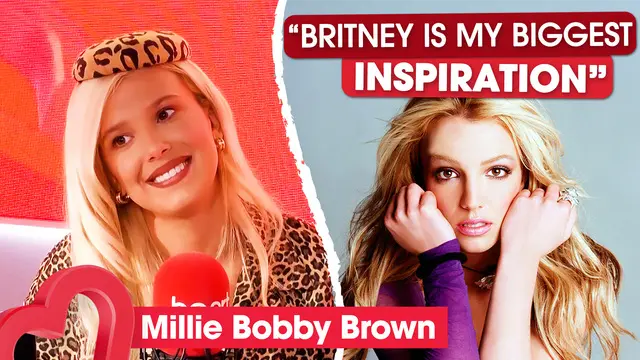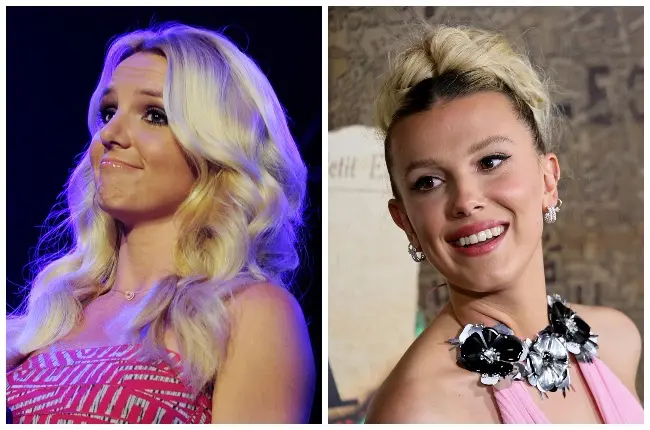The world of music is no stranger to covers and renditions, but when Bobby Brown decided to provide his candid opinion on Britney Spears’ version of his classic hit “My Prerogative,” it sent ripples through both fan bases. In a recent episode of the “Club Shay Shay” podcast hosted by Shannon Sharpe, Brown did not hold back his feelings, labeling Spears’ take on his 1988 chart-topper as a “butchering.” This declaration was not merely a passing comment; it reflects deeper sentiments about artistic integrity, nostalgia, and the evolving landscape of pop music.
The Backstory of “My Prerogative”
Originally released in 1988, “My Prerogative” quickly established itself as an anthem of self-assertion, underscoring themes of individuality and defiance against public scrutiny. Bobby Brown, a pivotal figure in the R&B genre, showcased his vocal prowess and charisma in this iconic track, which resonated with fans and critics alike.
Initially included in his second studio album, “Don’t Be Cruel,” the song spent an impressive 24 weeks on the Billboard Hot 100, solidifying Brown’s status as a leading figure in the new jack swing movement. The song’s infectious hook and Brown’s dynamic performance continue to draw attention, making it a staple in the realms of R&B and pop.
The song’s legacy took a turn in 2004 when Britney Spears, equipped with her own flair for the dramatic, released her rendition as part of her compilation album, “Greatest Hits: My Prerogative.” As a pop princess who had captivated audiences worldwide, her version was anticipated by fans. However, the reaction was mixed. Brown’s pronouncement regarding the cover brings into the spotlight not only the vast differences in their artistic styles but also the expectations tied to such a significant original track.
The Artistic Integrity Debate
In the world of music, criticism of cover songs often stems from a desire to maintain the essence of the original. Brown’s assessment illustrates a key aspect of this debate: the fine line between interpretation and distortion. When he remarked on Spears’ cover, he referred to a sense of loss in artistic integrity. This sentiment resonates widely in the music community, where covers can often ignite fervent discussions among fans.
What can lead to such divergent views on a rendition? Here are some contributing factors:
- Authenticity: Fans often seek an authentic representation of the original work. They yearn for the emotions and stories that the original artist infused into their songs.
- Performance style: Both Bobby Brown and Britney Spears possess unique performance styles. Brown’s R&B roots contrast with Spears’ pop-centric approach, which some fans may view as a misinterpretation of the song.
- Nostalgia: For listeners who grew up with the original track, a cover might evoke strong emotional responses. Changes in arrangement or style can provoke a sense of betrayal.
Brown’s candid remarks provide an opportunity to reflect on the expectations placed on artists when they choose to cover popular songs. His admission that he “cleared” the cover because it was Britney Spears reflects both a sense of duty and a moment of disillusionment. The permission granted can also embody a broader acknowledgment of Spears’ influence in music, thereby lending a nuanced layer to the conversation.

The Reception of Britney Spears’ Cover
Upon its release, Britney Spears’ version garnered significant media attention. The anticipation surrounding it hinged not only on Spears’ popularity but also on the iconic backdrop of the original song. However, as Bobby Brown’s comments surfaced, fans quickly flooded social media platforms with their own reactions, showcasing a fierce divide.
| Perspective | Response |
|---|---|
| Bobby Brown | Critiqued the rendition as a butchering, expressing disappointment. |
| Britney’s Fans | Defended her version, calling it superior and enjoyable. |
| Cultural Critics | Highlighted the evolving nature of pop music and reinterpretation. |
Responses from fans have ranged widely. Some argued vehemently in defense of Spears, stressing that her vocal qualities and unique interpretation breathe new life into the classic. Others echoed Brown’s sentiments, suggesting that the emotional depth of the original was lost. This conflict raises an essential question: does the value of a cover ever surpass that of the original, or does it merely serve as a reflection of a different era in music?
The Role of Social Media in Celebrity Criticism
In a digital age, social media has become a powerful tool for fans to express their opinions, amplifying every celebrity criticism and endorsement. The platforms provide a space for discourse, where individuals can rally behind celebrities, share their perspectives, or engage in heated debates.
For instance, platforms such as Twitter and Instagram became arenas for fans supporting Spears. Many noted that her cover retains a contemporary pop feel that resonates with younger audiences, who may not even be aware of Bobby Brown’s original track. Regardless of individual opinions, these interactions emphasize the interconnectedness of artists and their contemporaries:
- Bringing older songs to newer audiences.
- Fostering respectful discourse between generations of music lovers.
- Contributing to the discourse on music evolution.
The Shifting Landscape of Music Covers
As music evolves, so do the expectations surrounding cover songs. The past two decades have witnessed an influx of celebrity covers across various genres. While once seen as a mere homage, covers now often take on a life of their own, prompting discussions about originality, ownership, and artistic sacrifice.
Bobby Brown’s comments highlight not just a personal disappointment but hint at a larger conversation surrounding the cultural significance of the original and the nuances of modern interpretations. With new generations constantly reshaping what it means to enjoy music, the notion of ownership becomes fluid.
Cover Songs: A Double-Edged Sword
The phenomenon of cover songs can be a double-edged sword. While they can revive interest in classic tracks, they also risk overshadowing the essence that made the original successful. Consider the following:
- Revitalization: A successful cover can introduce a new generation to the original artist’s work.
- Redefinition: Artists may take creative liberties, giving the song new meaning or context.
- Backlash: If the cover misses the mark, it can lead to disparagement from both fans and original artists.
Brown’s experience serves as a cautionary tale. He reflects on the importance of approaching cover songs with respect and understanding their impact. It prompts a reconsideration of how music is shared and interpreted across generations, especially as his own work continues to inspire numerous contemporary musicians.

The Future of “My Prerogative” in Popular Culture
The enduring nature of “My Prerogative” surprises no one familiar with the realms of pop and R&B. Its ability to adapt and resonate with successive generations ensures its place in the cultural lexicon. Bobby Brown’s criticisms and Britney Spears’ interpretations will likely fuel ongoing discussions about the intersection of iconic tracks and cover renditions.
Moreover, the evolution of the music industry means that these discussions are only just beginning. As artists push boundaries and experiment with new sounds, the lines between cover and original are increasingly blurred.
Exploring the Future of Music Covers
As the world anticipates future artists, it is worthwhile to consider the implications of cover songs moving forward:
- Will artists become increasingly experimental in altering the sound of classics?
- How will the notion of ‘sacred originals’ evolve?
- Will fewer covers be subject to scrutiny as listening habits shift?
Ultimately, Bobby Brown’s self-reflection signals the necessity for vigilance and discernment when navigating covers—both in issuing permission and gauging the longevity of their impact. The discourse surrounding Spears’ cover of “My Prerogative” reflects a broader tension in the entertainment landscape, one that intertwines nostalgia with creativity across generations.
I’m Mikael, a 35-year-old Gossip Gravity Creator. I’m passionate about curating captivating content that sparks conversations and ignites curiosity. Join me on this exciting journey as we explore the fascinating world of gossip and trends together!



